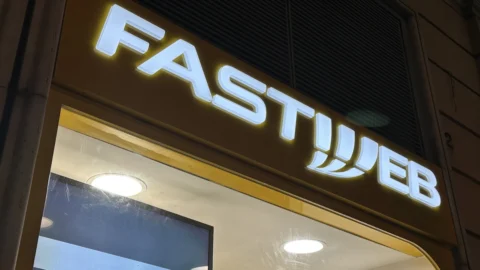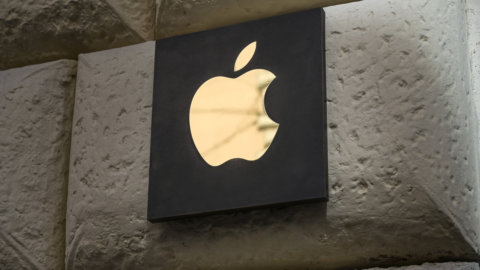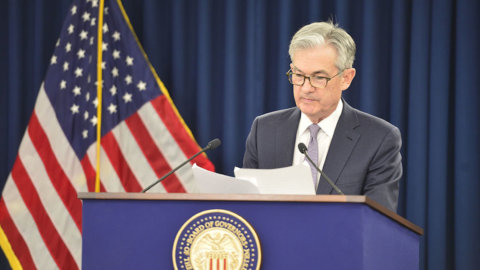“The world went crack”, headlines this morning Les Echos, a happy synthesis of the surreal situation in which the planet has plunged under the dictatorship of the coronavirus. The Stock Exchanges, completely insensitive to the therapies of the authorities, are adapting to the climate of the Middle Ages: Consob, for today's session, has imposed a ban on short selling on 85 securities, a late and perhaps inadequate measure after the worst session in the history of Piazza Affari, left to itself in an armored city. Things aren't much better in the USA, after the ban on flights to and from Europe which undoubtedly favored the explosion of sales to the highest since the 1987 crash. And the crisis, like the epidemic, doesn't even stop this morning.
TOKYO LIMITS THE DECLINE TO 6%
Tokyo's Nikkei is down 6%, from -10% tonight. Kospi of Seoul -6,4%. Hong Kong's Hang Seng -5,8%. Stock exchange losses in China, a country that is moving away from the worst of the health crisis, are less large: Shanghai-Shenzhen CSI index -1,1%.
A report by Reuters compares the response to the epidemic of Italy and South Korea, countries affected in a similar way. Faced with the quarantine for millions of people, the over 15 infections and 1.258 victims of the Bel Paese, there are 67 victims in Korea. Perhaps, the agency suggests, the explanation lies in the technology that has made it possible to report and intervene on cases at risk with great timeliness.
The monetary authorities also took the field: the Sydney stock market is up 1% after the central bank of Australia intervened with a liquidity injection of 8,8 billion Australian dollars, equal to 5,5, XNUMX billion US dollars.
Overnight, the Bank of Japan offered to buy up to 500 billion yen ($4,8 billion) of corporate bonds.
THE FED INPUTS 5 THOUSAND BILLION, THE OIL RISES
Even the Federal Reserve is preparing to take the field after the collapse: 5 trillion dollars of liquidity will be injected into the market.
Futures on Wall Street rebound, which yesterday experienced the blackest day since 1987: Dow Jones -9,99%, S&P 500 .9,51%, Nasdaq -9,43%.
Futures on European stock exchanges also anticipate a 2% rise.
Brent oil is up 2%, to 33,8 dollars, from -7% yesterday. In five days, the technical body of OPEC + will meet again, a sign that the alliance between Russia and Saudi Arabia could be recomposed.
Gold lost 3,6% yesterday and was little moved this morning at $1.580. Euro Dollar at 1,120, from -0,7% yesterday. The 10-year Treasury Note trades at 0,83%
NIGHTMARE DAY, MADAME LAGARDE'S GAFFE
Yesterday's session was the worst in the history of the Italian Stock Exchange. And it coincided with the debut on the field of Christine Lagarde, absolutely in disarray in the afternoon press conference, to the point of replying to those who asked him for an opinion on the rising spread that "this is not a matter for the ECB". He stuff Mario Draghi would never have said, not even under torture. It is likely that the former director general of the IMF intended to arouse the sensitivity of governments, especially in Germany and the Netherlands, but the gaffe has left its mark. And reversing in front of the CNBC cameras was useless: "I am fully committed to avoiding any fragmentation in a difficult moment for the euro area - he said - the widening of spreads linked to the coronavirus compromises the transmission of monetary policy". What to say? Arise us Mario, the savior of the euro.
BUSINESS CENTER (-16,9%) DOWN TO 14.894 POINTS
Piazza Affari experienced a nightmare: -16,92%, slipping to 14.894 points. Double-digit reductions also for the other price lists in the Eurozone. Worst of all, Madrid closes (-14%). Paris limits (so to speak) the bloodletting to 06%. Frankfurt -11,68%. Outside the euro area, Zurich (-11,44%) and London (-10,48%) lose ground.
FLY THE SPREAD TO 262 POINTS
The spread closed at 262 points, after taking flight following the Eurotower press conference: the double maneuver presented by Christine Lagarde appeared modest, compared to the current crisis.
The yield of the BTP flew to 1,73% (+57 basis points). The German Bund holds its positions at -0,74%.
The Treasury Ministry successfully concluded the BTP auctions yesterday morning in a very difficult context. The June 2023 BTP was assigned for 3,5 billion, with a coverage ratio of 1,30 and a yield of 0,74%, 84 basis points more than in the previous auction.
The seven-year BTP (January 2027) achieved a gross yield of 0,92%, 44 points more than the February 13 auction (+0,48%).
Even for the modest amount offered (1,5 billion), the ten-year bond was assigned a gross yield of 1,29%.
QE AHEAD SLOWLY, RATES STILL, TLTRO INCREASE
But what were the interventions of the ECB? And why did they unleash such a violent reaction?
The securities purchase plan envisaged by the QE has risen by 120 billion until the end of 2020. In practice, it goes from 20 billion a month to 32 billion, a truly modest and insufficient increase.
The already operational TLTRO is increased, bringing the firepower to 2.500 billion euros, i.e. 1.000 billion euros more than today. The conditions become even more convenient, as those who draw have a negative spread of up to 75 basis points, against the 25 basis points of the current instrument.
On the other hand, no forms of protection are envisaged for banks that decide to take on liquidity, such as for example the guarantee of a part of the loans disbursed, but the Supervision of the ECB has moved on this issue in a coordinated way: it has been announced an emergency measure authorizing banks to temporarily drop below regulatory capital thresholds and suspending stress tests for this year.
"IT'S NOT A DRAGON BAZOOKA, BUT IT'S NOT A WATER GUN"
Basically it's not Mario Draghi's bazooka, but it's not even a water pistol. The very negative reception from the market, however, cannot fall solely on Madame Lagarde's shoulders or on the absence, in communication, of any sign of comfort in the face of a tragic situation.
But from this point of view the real limit lies in the insensitivity of the Commission which, writes Alessandro Fugnoli, "lost behind its baroque dreams on climate change, thinks of extinguishing the blazing fire with a glass of water worth 25 billion ”, i.e. the amount allocated by Italy alone.
At the national level, Germany, after seven hours of painful debate within the government coalition, has launched a fiscal package of 0.1% of GDP starting from 2021.
It is clear that this way you are not going anywhere. At the level of fiscal policy, a much more robust intervention is needed, mashed up through the Salva-Stati fund which lies in Luxembourg's coffers.
As China has done, by promoting a targeted fiscal package and by defending the stability of the exchange rate and the stock market, guiltily left to itself by the Italian authorities, who thought about closing the cinemas but not guaranteeing normal conditions for business.
RAIN OF DOUBLE-DIGIT LOSSES: -17% THE BIG BANKS
It is almost superfluous to describe the performance of individual stocks, almost all with double-digit declines.
The banks crumble. Unicredit and Intesa drop by more than 17%. Even worse are Ubi (-19,45%), Mediobanca (-18,69%), Pop Sondrio (-18,94%) and Bper (-17,75%). Banco Bpm (-16,7%) and Mps (-18,55%) also collapsed.
The landslide of UnipolSai (-6,05%) after a session in positive territory was less heavy. Kepler Cheuvreux has raised the rating on the stock from hold to buy, with a target price of 2,6 euros.
ATLANTIA AND AUTOGRILL: DECREASE OF OVER 20%
Among the worst performers are Atlantia (-22,2%) and Autogrill (-21%), due to the contraction in traffic volumes on airports and motorways in Italy and abroad in this phase of the stoppage of people's movements.
Amplifon loses ground (-19,45%): Kepler Cheuvreux cut the target price on the stock from 23 to 18,5 euros, confirming the hold recommendation, following a downward revision of the Eps 2020 estimate of 14%.
Campari did not live up to its reputation as the defensive stock par excellence (-16,11%): Deutsche Bank reduced its rating to hold from buy and the target price to 6,9 euros per share from 9,9 euros, after a cut of the EPS estimate of 13%-16%.
ENEL ALSO SELLS. TIM'S REVIVAL FADES
In deep red Enel (-19,85%) and Tim (-18,47%), overwhelmed despite the promising signs that emerged from the accounts.
Among the industrialists Leonardo loses 22%, the same percentage decrease also for Poste Italiane, the latter recently increased after the industrial plan.
Super sold football titles after the stop to the championship and the European cups: Juventus -18%, Lazio -23,1% and AS Roma -16%.
THE BLACK JERSEY IS UP TO SALINI, LUXURY ON SALE
The luxury sector is under the analysts' lens: Ferragamo -15,8% (hold for Deutsche Bank, target at 19,5 euros from 20,5), Moncler -11,45% (Jefferies reduced the target price from 44 to 39 euros): Kepler Cheuvreux has cut the target price on Brunello Cucinelli (-2,1%) from 32 to 27 euros. Oviesse leaves 21,4% on the ground.
The black jersey in the list goes to Salini Impregilo which leaves 25% of its value on the field.





